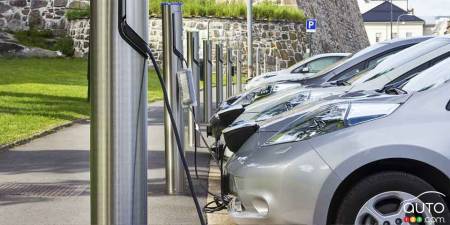While in Canada the level of understanding of electric vehicles has increased substantially in recent years, especially in large urban centres and in provinces like British Columbia and Quebec, it’s easy to assume that is so in other parts of the world.
One of those other parts is the United States. A recent study reveals some statistics that are pretty surprising, even disquieting. For example, 42% of Americans believe that an electric vehicle needs gasoline to function.
We’ve had other studies in recent months and years showing that in regions where EVs are few and far between, there is little knowledge of how they’re configured. That’s easy enough to understand; but gasoline? Really?
The latest data is from a study carried out by Ford, which not coincidentally is readying to introduce several electric vehicles – six by the end of 2022, to be exact. And at least one of those will be an electric pickup.
Other data arising from the study are more understandable. For one, 80% of respondents to the survey would not choose an electric vehicle due to considerations to do with weather extremes. 65% of those surveyed, meanwhile, would avoid EVs due to their all-wheel-drive configurations.
We can expect that Ford will learn from the study and tailor its marketing strategy accordingly. For example, the company knows it has work to do convincing consumers that an electric vehicle can tow heavy loads by the time it unleashes its all-electric F-150 truck in 2021.
Even more basically, automakers need to inform consumers about the way an electric vehicle functions, at least so they know they don’t need gasoline to run.
The decision to buy an electric vehicle or not is entirely up to each buyer, of course, but stakeholders in the field of electric mobility – and that includes virtually all automakers – will need to ensure those buyers have the needed understanding before they makes their decisions. By the same token, consumers have some responsibility to get at least nominally informed.



